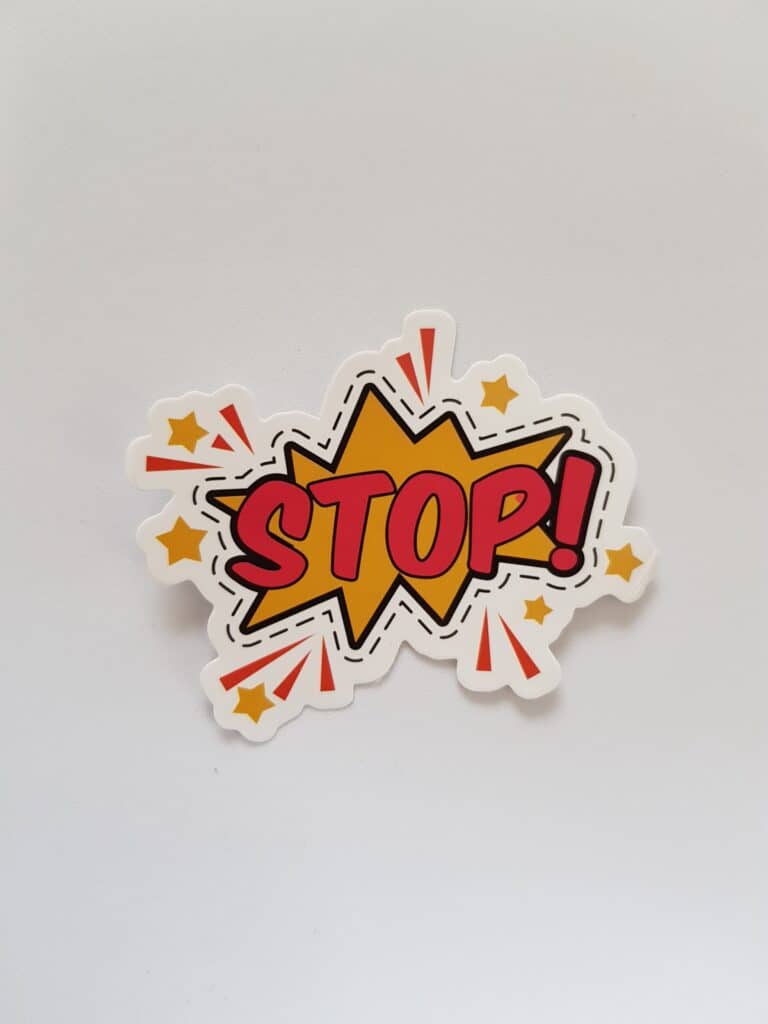
One of my hopes for the New Year, is learning to pause. Looking after myself better has been a long term commitment of mine. And yet, I’ve struggled to make progress in this year. Perhaps more than any other area of my life. But then in quick succession the following two things happened. Firstly, I read on one of those ‘things you wish you new when you were younger’, that if you don’t slow down, your body will force you too. A few weeks late, I found myself in bed with a virus. One that led me to the doctors; not somewhere I usually go. My body literally forced me to stop. This was a wake up call. I felt what I was doing to my body. And wondered how much better off I might have been if I’d looked after myself that much better.
For A Guide to Pressing Pause for Your Mental Health read here.
Pressing Stop
I’m one of those people who is always running around. And when told to slow down or stop, I insist that this is just a busy week or month. I reassure myself that the following week or month will be slower. Because I’ve put the effort in now. And yet, as we pretty much all know, waiting for life to slow down is like waiting for eventually. I’m increasingly learning this the hard way. Another thing I read which resonated read “burnout encourages you to borrow from tomorrow to get through today”. And I thought, yes. Too often I tell myself I’ll just keep pushing and keep going. And rest tomorrow. But the rest invariably doesn’t happen and I’ve depleted those resources the day before anyway. Making tomorrow that much harder.
My conclusion is the need to press stop. As it turns out, pause just isn’t enough anymore. The times when I relax and do self-care feel like a distant memory the moment I return to everyday life. Whether a few hours or less. It’s not enough to keep my resources robust in the face of a busy life. So, pressing stop is the only option. I’m forcing myself to push back against the negative thinking and anxieties. The ones which tell me to work harder or keep going. Or who question what will happen if I don’t? But I’ve been there. I’ve started asking for help or saying no. And the world didn’t crumble or fall apart – shocking, I know.
For How to Accept and Manage Life as a To-Do List read here.
How to Leave It For Later
Leaving it for later isn’t something I’m comfortable with. It’s definitely a work in progress. Sometimes, leave it for later is exactly that. Leave it for tomorrow or an indefinable time when you might get around to it. Other times, it’s delegation and asking for help. When I was unwell in bed, I had to ask a family member to look after my daughter. There was no way I could have looked after her all day; I could barely move. I couldn’t look after myself, let alone another human being. It felt strange, partly because this has never happened before. Not on that level. But also, because it was so easy. And I wondered what had held me back from doing so before.
So, what have I learned from this process which may help you?
Get Comfortable
Firstly, remember it is ok to leave it for later. Start by giving yourself permission to do so. You may find an affirmation help, for example, I deserve to look after myself. Or I have the right to leave it for later. You can also question whether it needs to be done today. Making dinner may have to happen – perhaps you can scale it back or do something easier – but not everything has to happen the day you planned. It’s easy to plan ahead for a day, but life doesn’t go as planned and you may not have the energy to do as much as you wanted. Or life may have thrown you a curveball. If it feels more comfortable for you, make a plan for when you will do it instead.
The second round of questions you may wish to ask yourself is, how would it feel to do it? Sometimes, I’ll push to get something done and feel exhausted by the end. Other times, that exhaustion is tinged with pride or comfort. There is a part of me that feels better for having done it. Whether it’s cleaning or tidying which then allows me to relax that much better. I find it hard to relax in a messy room. Or it’s something I’ve left for later one too many times. Lingering on my to-do list and generating it’s own anxiety in all it’s not-yet-done glory. At those times, it may be worth doing or doing in some easier way. Remember doing the first step but not completing the task is valuable.
For Intentional Self Care: Why You Need It read here.
What Does it Mean?
If you find it hard to stop and leave it for later, to delegate or to ask for help. Play detective and be curious about the root of your hesitancy. It may be as simple as asking yourself what the worst case scenario is. If you don’t do x, what will happen? If it does need to happen today, think about whether you can do it less or differently. For example, the week I was unwell friends were coming for a meal. I knew I wanted to have them over as I would enjoy it. But I wasn’t up to making the full meal like I usually would. So, I scaled back my menu and purchased a few bits to make it easier. Leaving it for later can mean doing things differently and making it easier for ourselves.
Asking for Help
We can apply the same method to asking for help or delegating. What is our mind block around doing this? For me, asking for help or delegating can feel like failure. An admittance that I can’t cope with my life the way it is. Or that I’m not as competent as I want other people to see me. These thought processes are not easy to get around. But I’ve learned to sit with the discomfort that they’ve generated. It took me a while to realise this was at the route of not asking for help. And it’s taken longer to accept this about myself and start to work with it. I know that I won’t always be comfortable with delegation or accepting help. But the more I do it, the more I can acknowledge the benefit of doing so. For myself, and those around me.

For Why the Basics of Self Care Are Important read here.
There’s also a part of me that worries what happens when I ask for help. What is the impact on the person I’m asking? If they’re struggling to cope; I don’t want to be a burden. I’ve learned that I have to trust people to be honest about how they can help. By asking and opening an honest conversation on the topic. I’m also mindful of the friends and family who may offer more than they can give. And so, I’ll accept their help to a certain extent but perhaps not everything they are offering me. This safeguards my anxiety around impacting their mental health negatively. And their kindness in offering too much.
However, learning to ask and accept help has been liberating. It has helped me feel more connected to the people around me. Making relationships feel more mutual; rather than always feeling like the giver. I think it makes people more willing to accept help from me too. So, it’s win-win all round!
What’s your experience of stopping and leave it for later? How easy do you find it? Were you able to get comfortable with it? Let us know below!

